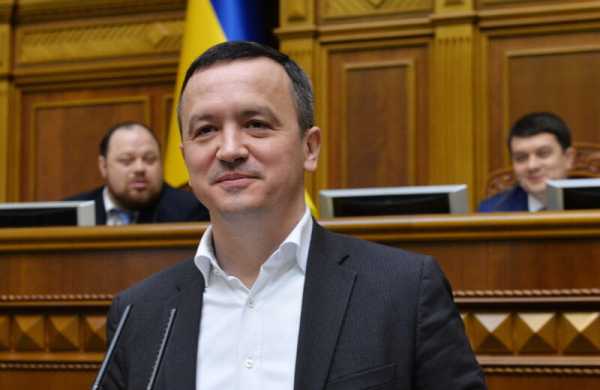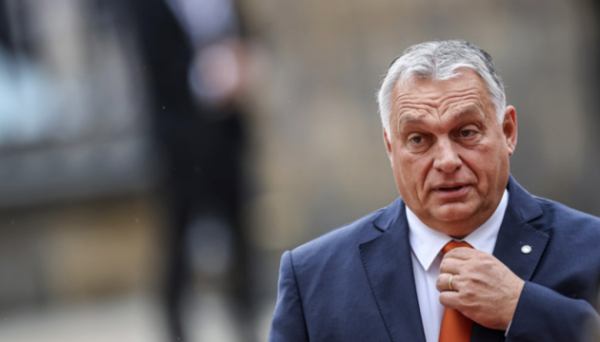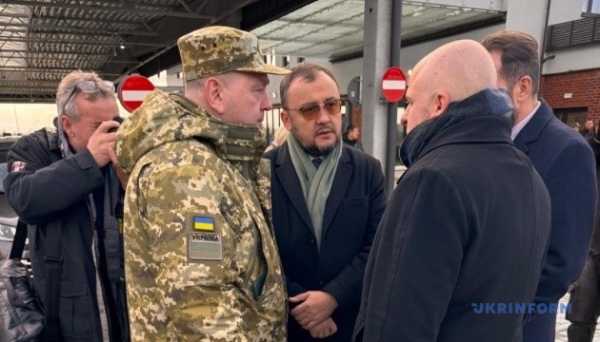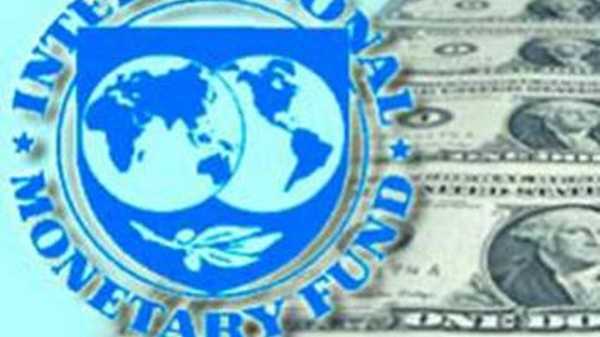Controversial agriculture, investment expert tied to Russia takes reins of economic ministry

Latest news for today in Ukraine

Ihor Petrashko, a former executive at agricultural giant UkrLandFarming has replaced Tymofiy Mylovanov as the economy, trade and agriculture minister, while Ukraine’s economy enters one of its darkest hours.
The 44-year-old is one of the lesser-known ministerial candidates who has worked in finance and banking, as well as agriculture. Experts who spoke with the Kyiv Post say that the incoming minister’s appointment signals that the government is still charting a course toward land reform, which has been mired in controversy and hundreds of legal amendments.
“This choice means that the main focus of the joint economic and agricultural ministry is supposed to be land reform – therefore, a specialist with experience in agricultural business was needed,” Oleksandr Paraschiy, an analyst with investment firm Concorde Capital, told the Kyiv Post.
“But,” he said, “it seems that life very quickly makes its own adjustments: Recent events require the ministry to focus on measures to save the economy.”
On the day of his appointment on March 17, Petrashko told parliament that he would focus on “supporting and balancing the Ukrainian manufacturer when the markets will be shutting down” and creating good economic fundamentals to support Ukrainian businesses to attract foreign investment.
“The systemic things, which I consider necessary to do, are to continue the policy of deregulation and to create conditions so that business is required to have minimal contact with the authorities.”
Oleg Nivievskyi, an assistant professor at the Kyiv School of Economics and agricultural expert, found these comments to be rather anodyne and in line with what mainstream politicians have been saying for years.
Several other analysts, however, have given Petrashko good marks.
“I know Ihor Petrashko very well for several years,” Anders Aslund, an economist and senior fellow at the Atlantic Council, wrote in an email. “A highly-qualified professional with a U.S. MBA and a former partner of Ernst and Young. I trust him to be a reliable professional… He is a person that gives you a sense of trust.”
Paraschiy, in turn, said Petrashko is “the most stress-resistant minister in the cabinet.”
In epicenter of scandals
Still, his seven-year stint as deputy general director with UkrLandFarming raised some eyebrows.
The large agro firm, which employs 30,000 people, is owned by controversial tycoon Oleg Bakhmatyuk, who is wanted for bank fraud and insider lending and is alleged to owe the Ukrainian government $1 billion.
Speaking to the Kyiv Post last fall, Bakhmatyuk denied wrongdoing, saying his two banks were mainly brought down by bad economic conditions.
Prior to this role, Petrashko also worked as an investment banker at Troika Dialog, a Russian banking and asset management firm, eventually becoming executive director of the firm’s Ukrainian branch.
Investigative journalists have placed Troika Dialog at the heart of a colossal international money laundering scheme, known as the Troika Laundromat. The scheme involved 70 companies, which moved billions of dollars in private wealth out of Russia, parking it in the west. An independent arm of Troika Dialog was operating the scheme.
While there is no information to suggest that Petrashko was in any way connected to Bakhmatyuk’s or Troika’s schemes, the fact that this information is floating around may cast a shadow on the new minister’s fledgling political reputation, said Nivievskyi.
“If you work in a senior position in the private sector in Ukraine, you inevitably work for one oligarch or the other, and that should not necessarily be held against a person,” Aslund pointed out. “Few are as straight and open as Petrashko.”
More important would be to pay attention to UkrLandFarming’s relationship with the government and the agricultural sector, Nivievskyi pointed out. The company was among the most subsidized farming enterprises, following Myronivsky Hliboproduct.
The government of Ukraine has been criticized for pouring aid and tax breaks into its large agro-businesses while leaving smaller farmers on the hook.
“The question that remains is how he will look upon the land market reform, where he has represented Bakhmatiuk’s interests previously,” said Aslund. “Needless to say, he must be well aware of being watched on that policy.”
Nivievskyi pointed out that when land reform goes forward, it will be extremely important for the ministry to focus on supporting the smallest farmers, who will be most vulnerable.
While the new minister’s approach to this problem is not yet clear, Petrashko has expressed his support for large companies. He has commented that Ukraine needs a few of its own global agricultural supergiants, the likes of Cargill, Bunge and Louis Dreyfus, along with 3-4 smaller companies.
Shmygal’s friend?
Petrashko comes from Lviv Oblast. According to a brief biography by Lviv Polytechnic National University, Petrashko had originally sought to work in medicine until his uncle, a professor, convinced him to study economics and management.
It is at Lviv Polytechnic that his path crossed with Denys Shmygal, the current prime minister, who selected Petrashko for his role, telling parliament, “I consider him one of the best economists in Ukraine. He will help us move forward amid the looming economic crisis.”
The two men even shared specializations. Petrashko got a bachelor’s degree in business administration, specializing as an economist-engineer. He would go on to get his MBA at Vanderbilt University in the United States.
Petrashko worked in the U.S. as a consultant at energy company Enron’s transaction structuring group in 2001. He moved to work as a senior consultant at tech firm GlobalSpec between 2002 and 2004, while also getting his lawyer qualification at the Ivan Franko Lviv National University.
From 2004 to 2007, he worked at Ernst & Young, one of the Big Four auditing firms, in both the Moscow and later Kyiv offices. According to his bio, he led the transaction advisory team and later became a partner.
He subsequently worked at Troika Dialog and briefly at Russia’s Sberbank, which acquired Troika for $1 billion. In 2013, he moved to work at UkrLandFarming.
Petrashko’s asset declaration was almost completely empty, save for his Kyiv apartment, which is listed in his wife’s name.
Source: www.kyivpost.com



